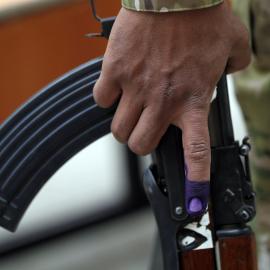To the Editor:
In "A Farewell to Arms Inspections" (January/February 2000), Daniel Byman writes, "In June 1996, UNSCOM Chair Rolf Ekeus agreed that his teams would avoid 'sensitive' sites...." This is not correct. In the agreement (between myself and Deputy Prime Minister Tariq Aziz), the Iraqi government undertook in writing the direct opposite: namely, to secure immediate unconditional and unrestricted access for the UNSCOM inspectors to all those sites in Iraq that UNSCOM wanted to inspect -- including sites that Iraq declared to be "sensitive."
Rolf Ekeus
Executive Chair of UNSCOM from 1991 to 1997 and Ambassador of Sweden to the United States
Daniel Byman replies:
My contention that Ambassador Ekeus agreed that UNSCOM would avoid certain "sensitive" sites relies on an account given by his successor, Richard Butler, who wrote in the September 1999 issue of Talk magazine that in the June 1996 meeting, "the two struck an agreement: Iraq would be permitted to severely restrict UNSCOM's access to any site the Iraqi government deemed 'sensitive' for national security reasons. This was in direct violation of a Security Council resolution stating that UNSCOM should be able to go anyplace, anytime, with whatever people it needed to do its job. The cave-in had begun."
